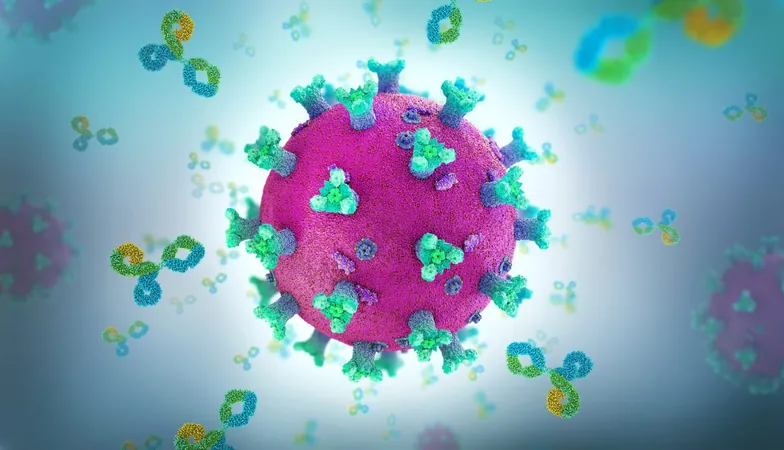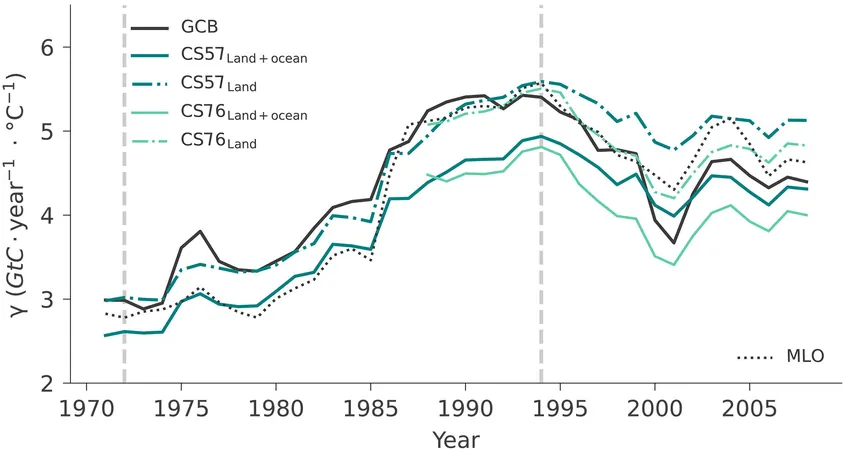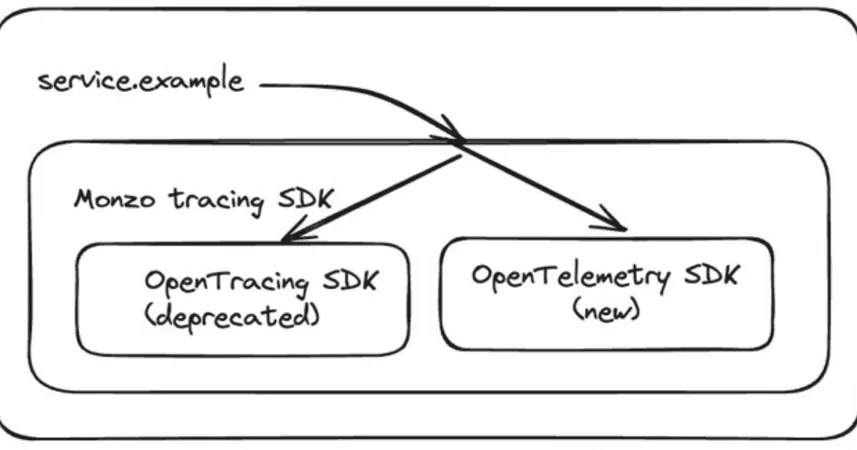
Is COVID-19 Stealing Years Off Your Brain? Shocking Research Reveals Long-Term Cognitive Decline!
2024-09-25
A groundbreaking study involving over 350 hospitalized COVID-19 patients has unveiled alarming evidence of substantial cognitive decline lingering for 12 to 18 months post-treatment. Researchers have associated this decline with aging, revealing that the effects could be akin to losing 20 years of cognitive performance. This revelation highlights the urgent need to understand the long-term impacts of COVID-19 beyond respiratory symptoms.
The research team, comprising experts from the University of Liverpool, King’s College London, and the University of Cambridge under the COVID-CNS Consortium, examined brain scans and blood tests, uncovering markers of brain injury and decreased brain volume among the patients. They found that the cognitive impairments were evident even in those who did not experience any immediate neurological complications, emphasizing that the reach of COVID-19 extends far beyond its respiratory origins.
Lead author Greta K. Wood stated, “After hospitalization with COVID-19, many individuals report ongoing cognitive symptoms often referred to as ‘brain fog.’ However, until now, there has been a lack of objective evidence linking these symptoms to cognitive impairment or biological indicators of brain injury.”
With their findings appearing in the prestigious journal *Nature Medicine*, the researchers have provided what they call “the clearest evidence to date that COVID-19 can have significant impacts on brain and mind health long after recovery from respiratory problems.” The research demonstrates that patients exhibited cognitive levels lower than expected for their age, demographics, and educational background when compared to a control group of 3,000 individuals.
According to corresponding author Benedict Michael, a professor of neuroscience at the University of Liverpool, "COVID-19 is not merely a respiratory illness. The most severely impacted patients often exhibit brain complications.” This research alerts us to the critical consideration of cognitive health in the COVID-19 recovery narrative.
The study also revealed a trend of potential recovery in a follow-up of 106 patients, raising questions about the duration and mechanisms of these cognitive deficits. However, current evidence suggests that brain cell injury may indeed play a role, with biomarkers in the blood aligning with reductions in the volume of key brain regions documented through MRI.
The findings underscore the necessity for targeted therapeutic strategies as a response to these persistent cognitive issues. Recognizing the possible immune-mediated nature of brain injuries in moderate to severe COVID-19 cases could shift how we approach recovery from this pandemic in the future.
As the world grapples with the ongoing fallout of COVID-19, these revelations offer a poignant reminder of the virus's far-reaching impacts, emphasizing the critical need for awareness and research into the long-term health of those affected. What does this mean for the millions who have survived COVID-19? Only time will tell, but the ramifications could be profound and long-lasting.









 Brasil (PT)
Brasil (PT)
 Canada (EN)
Canada (EN)
 Chile (ES)
Chile (ES)
 España (ES)
España (ES)
 France (FR)
France (FR)
 Hong Kong (EN)
Hong Kong (EN)
 Italia (IT)
Italia (IT)
 日本 (JA)
日本 (JA)
 Magyarország (HU)
Magyarország (HU)
 Norge (NO)
Norge (NO)
 Polska (PL)
Polska (PL)
 Schweiz (DE)
Schweiz (DE)
 Singapore (EN)
Singapore (EN)
 Sverige (SV)
Sverige (SV)
 Suomi (FI)
Suomi (FI)
 Türkiye (TR)
Türkiye (TR)